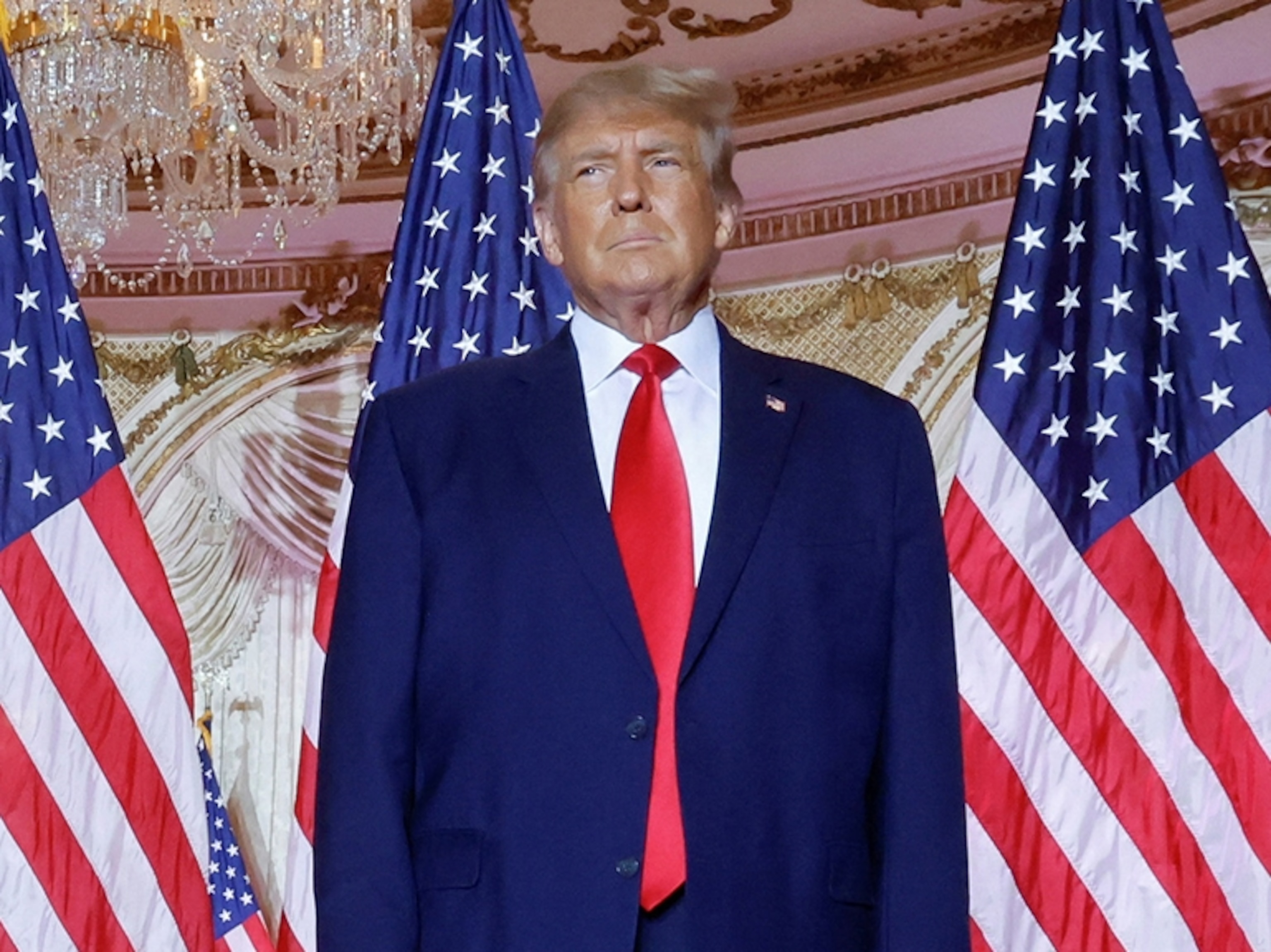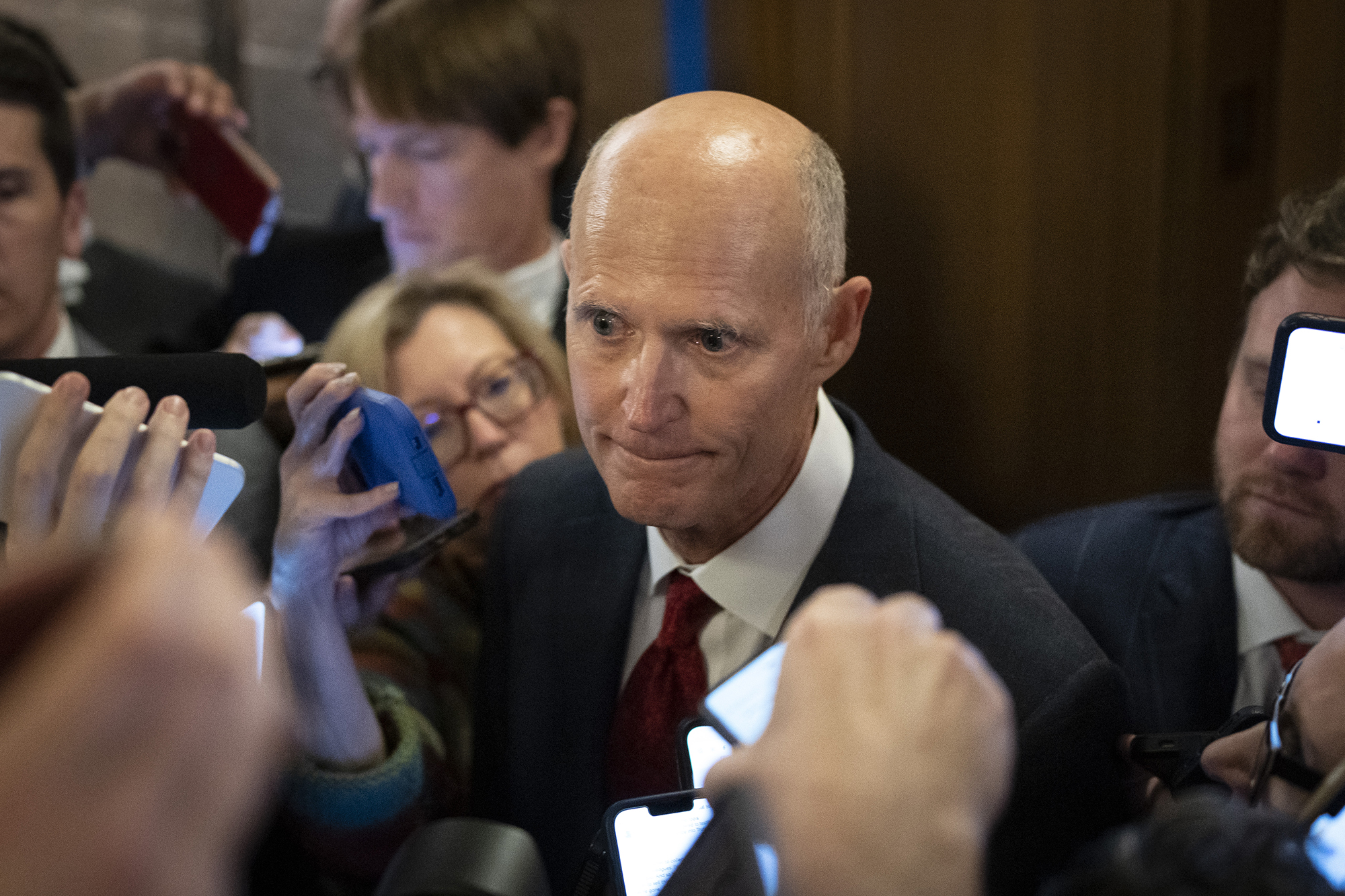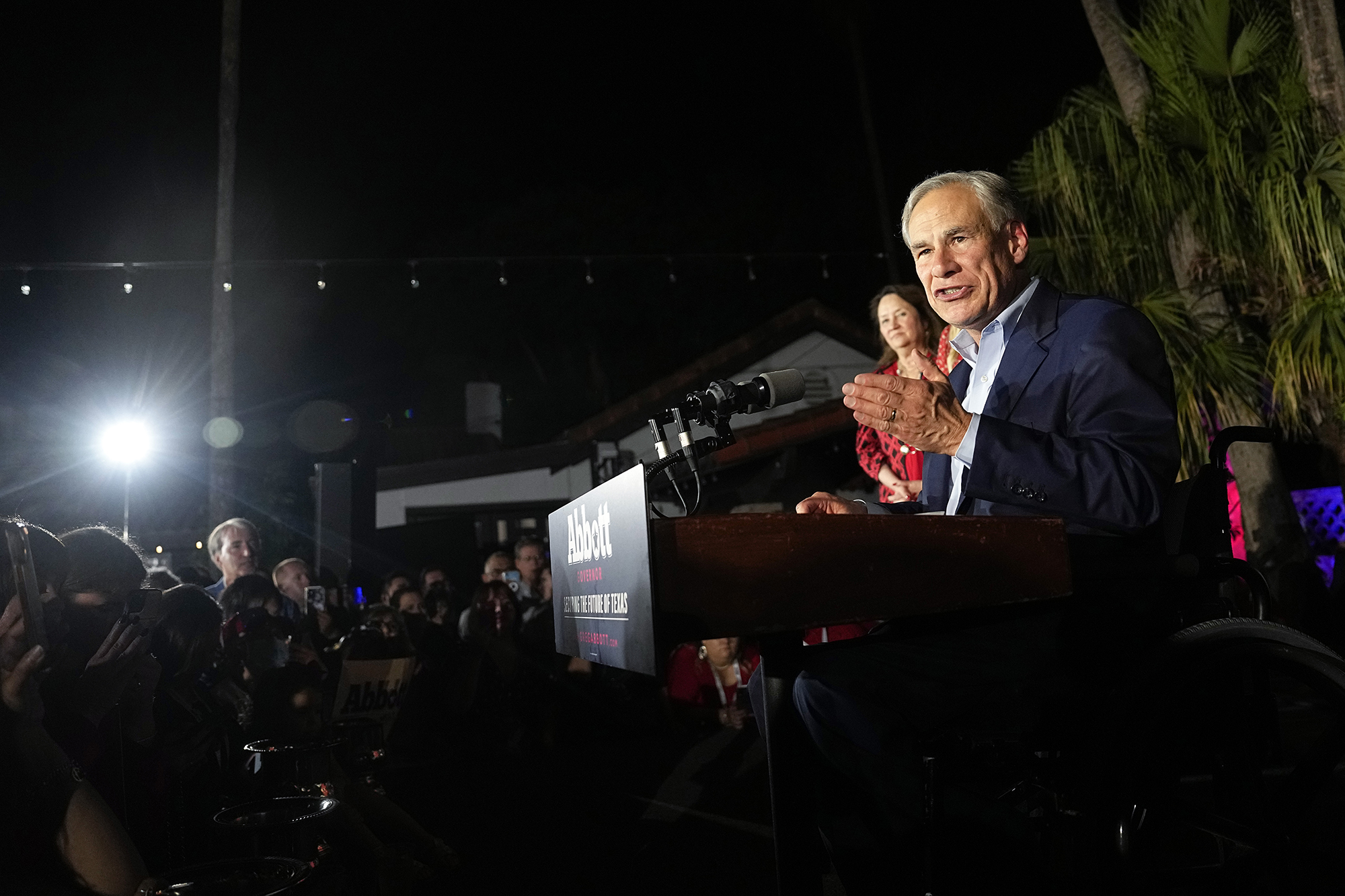Trump forces Republicans into more awkward choices: The Note
Ignoring the now-former president is no longer a viable option.
The TAKE with Rick Klein
The first time around, Republicans in the 2016 campaign were able to act largely as if Donald Trump was someone else's problem -- until, suddenly, he was everyone's to deal with, in the primaries, as the GOP nominee and then as president.
Ignoring the now-former president is no longer a viable option. He started the 2024 cycle earlier than almost everyone in his party wanted with his announcement Tuesday night -- amid an atmosphere of losing that has the party looking for answers.
They're not finding many good ones while looking in Trump's direction. A growing number of Republican leaders would rather not be looking that way at all right now, as evidenced by the prominent voices calling for him not to announce or who, like former Vice President Mike Pence, are suggesting strongly that there will be stronger choices for Republicans in 2024.
The details of Trump's announcement speech were mostly unsurprising. He was relatively subdued as he sought to turn a midterm election that was a repudiation into a vindication, while spreading half-truths about his endorsement record, his presidential accomplishments and his successor's policies.
Trump conceded that, with disappointment swirling among Republicans for not doing better in the midterms, "much of this blame is correct." But he took no blame himself for his chosen candidates or messaging -- or for the way the cycle effectively began, with his efforts to overthrow the 2020 results.
"This will not be my campaign. This will be our campaign -- all together," Trump said.
That's now going to be up to Republican voters and leaders to decide. They had chances to move to end Trump's dominance before, though the incentives may have shifted for a party that was promised winning but has endured a streak of defeats.

The RUNDOWN with Averi Harper
For Republicans in both the House and Senate, intraparty divisions are on display as members decide who will lead the party in Congress come January.
Rick Scott of Florida, the chair of Senate Republicans' campaign arm, has launched a bid to challenge Senate Minority Leader Mitch McConnell. Fresh off midterm losses that will place his party in the minority again, Scott is trying to convince his fellow Senate Republicans that he is the man for the job.
"We know that chief among our problems in races across America was a lack of Republican voter turnout. There may be many reasons for that, but after traveling the country to support our candidates, I believe voters want a plan," Scott wrote in a letter to his colleagues, obtained by ABC News. "Unfortunately, we have continued to elect leadership who refuses to do that and elicits attacks on anyone that does. That is clearly not working and it's time for bold change. The voters are demanding it."
Scott might not be the change that others are looking for: North Carolina Sen. Thom Tillis told reporters, "not at all, not at all," when asked if Scott has a chance of ousting McConnell.
In the House, GOP leader Kevin McCarthy has secured enough votes to become speaker -- if Republicans take the majority. However, in the secret vote during leadership elections on Tuesday, when McCarthy won the speakership nomination, 31 GOP House members nonetheless voted for Arizona Rep. Andy Biggs, a former chair of the hard-line Freedom Caucus.
After election night underperformance, the party appears to be at a crossroads and its members in both chambers will have to confront razor-thin margins that will require unity to further the party's agenda in the new year.

The TIP with Alisa Wiersema
Fresh off a double-digit winning margin in last week's election, Texas Gov. Greg Abbott announced Tuesday that his administration is busing another group of migrants to a northern city.
The group Abbott referred to in his announcement will be bused to Philadelphia -- a new addition to the list of cities where the Republican governor had previously sent migrants. Unlike the preceding drop offs spanning New York City, Chicago and Washington, Abbott's office gave advance notice of the migrants' arrival at Philadelphia's William H. Gray III 30th Street Station slated for Wednesday morning.
Three of the nation's largest metro regions were already receiving groups of migrants from Texas due to what Abbott calls their "sanctuary city status." The addition of Philadelphia to the list also expands the amount of political jabs that Texas' chief executive is directing at Democratic mayors in traditionally blue regions.
As part of the announcement, Abbott's office invoked Philadelphia Mayor Jim Kenney as a figure who "has long-celebrated and fought for sanctuary city status, making the city an ideal addition to Texas' list of drop-off locations." Abbott previously traded blows with New York City Mayor Eric Adams, Chicago Mayor Lori Lightfoot and Mayor Muriel Bowser of Washington.
Although Abbott characterizes the busings as a "response to President Biden's open border policies overwhelming border communities in Texas," recent national polling indicates that immigration issues were not top of mind for voters overall. However, according to the latest ABC News/Washington Post polling ahead of the midterm election, 77% of Republican voters cited immigration as a top issue in their vote.


Power Trip
"Power Trip: Those Who Seek Power and Those Who Chase Them" follows 7 young reporters as they chase down candidates in the lead up to the midterms with George Stephanopoulos guiding them along the way.
THE PLAYLIST
ABC News' "Start Here" podcast. "Start Here" begins Wednesday morning with former President Trump's third campaign for the White House. ABC's Jonathan Karl leads us off. Then ABC's Rachel Scott reports on the GOP infighting after a lackluster performance in the midterms. And ABC's James Longman discusses the concern behind Polish media reports of a missile crossing near the NATO member amid Russia's invasion of Ukraine. http://apple.co/2HPocUL
ONE MORE THING
As Donald Trump announced Tuesday he is running again for the White House, two groups are already working behind the scenes to mount a national push to get elections officials to stop him from being on the ballot because of Jan. 6 -- even as similar such efforts have failed against other Republicans. Free Speech For People and Mi Familia Vota are launching a campaign via TrumpIsDisqualified.org. https://abcn.ws/3TDXgr2
WHAT YOU NEED TO KNOW TODAY
- First lady Jill Biden speaks at 1:15 p.m. ET at the College Promise Careers Institute in Washington and then at 2 p.m. ET at the Smithsonian's Hirshhorn Sculpture Garden groundbreaking.
Download the ABC News app and select "The Note" as an item of interest to receive the day's sharpest political analysis.
The Note is a daily ABC News feature that highlights the day's top stories in politics. Please check back Thursday for the latest.




